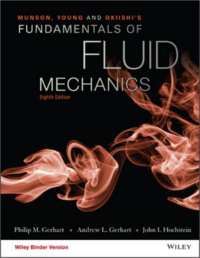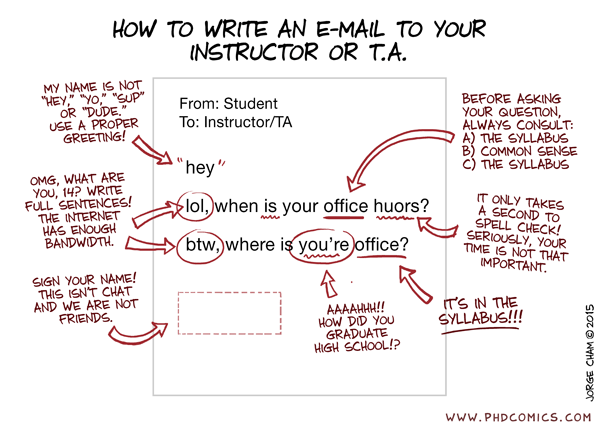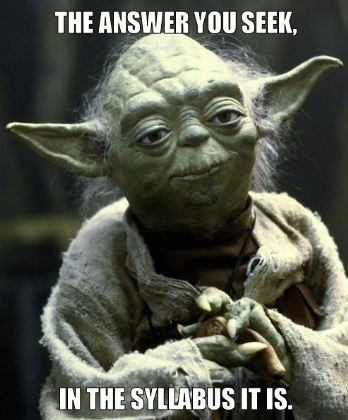Syllabus
Catalog description
(Prerequisites - ES201 with a grade of C or better) Extends the conservation and accounting framework to examine fluid motion. Topics include dimensional analysis, pressure variation in both stationary and moving fluids, viscous effects including boundary layers, laminar and turbulent flow. Applications include lift and drag, pipe flow, compressible flow. Fundamental concepts are enriched by laboratory experiences.
Instructors
 |  |
Text
 |
Munson, Young, & Okiishi Fundamentals of Fluid Mechanics, 8th Ed.
This book is also known as (for reasons I don't quite understand) The textbook is required for this course. Reading assignments and homework problems will be assigned from the textbook throughout the quarter. In general you should bring your textbook to class in order to make use of its variousvtables, figures, and other data. In addition to the required text, you should also expect to refer to your ES201 notes from time to time. |
High level course content & learning objectives
After successful completion of this course, students will be able to:
- Perform hydrostatic force and moment analyses on submerged surfaces
- Apply the Bernoulli equation and mechanical energy equation (pipe flow equation) to the flow of an incompressible fluid
- Calculate major and minor losses for the internal flow of an incompressible fluid
- Calculate lift and drag forces for the external flow of an incompressible fluid over an object
- Relate area, Mach number, pressure, and temperature in a quasi 1-D isentropic conpressible flow
- Use concepts from lecture to conduct fluid experiments and correctly interpret results
Course activities & philosophy
Mastering any new subject requires continuous effort by the learner to make sense of new ideas and concepts and to relate them to what you already know. Learning to identify, formulate, and solve problems requires diligent practice in applying a logical problem-solving methodology. Learning to solve real life engineering problems also requires a willingness to deal with ambiguity and uncertainty.
As was the case with ES201, Conservation and Accounting Principles, this course is organized around development activities and evaluation activities. Development activities will take place all quarter long and provide you an opportunity to actively master the course material. Evaluation activities will consist of two exams during the quarter and a final exam. In addition, laboratory activities will occur throughout the quarter and are designed to give you hands-on experience related to the course material, achieve additional learning objectives, and/or simply enrich the learning experience. Participation in all lab activites is required.
⇧Course expectations
Work load:
This is a four-credit course. The workload for this course should average 8 to 12 hours a week outside of class. This time should be spent reading the text and notes, working problems, discussing material with your colleagues, and thinking about the material in this course.
Reading Guidelines:
You paid a small fortune for the textbook, and so you really ought to get your money's worth out of it and read it! You can (theoretically) learn everything you need to know in this course by reading the textbook only. In fact, the vast majority of what I have learned within engineering since graduating from college has come in the form of reading textbooks and journal articles.
Reading assignments will be made daily and should be completed before coming to class. You are strongly encouraged to take notes as you do the daily reading, as this makes reading a more active exercise and thereby increases its effectiveness greatly.
Video notes
This class is somewhat "flipped" in that I have created a number of lectures in video format. You are to watch these lectures outside of class, and fill in the fill-in-the-blank notes I have provided you while you are watching. At the end of most videos there is a small quiz to reinforce what you have watched. This too should be completed before class. Note that a portion of your final grade will depend on your having completed these videos in a timely manner. Also note that you will not have to watch a video before every class. You can find out exactly which videos to watch when by going to the Classes section.
In class activities
At the beginning of each class I will take your specific questions on the current topic(s). Are you confused about the correct responses to the quiz? We will clear it up then! The rest of class will largely be devoted to active learning in the form of collaboratively solving problems and engaging in additional activities and exercises, including homework problems. (Note that solutions to in-class activities are generally available in the Classes section.) Fluids is not a spectator sport, my friend!
Homework guidelines:
Homework problem assignments will be made daily and will typically consist of two or three problems. Some problems will be from the text, others will be downloaded from the Other files section of this website. Homework is due at the beginning of the period on the assigned due date. Late homework will not be accepted except for medical reasons or prior arrangements with the instructor.
You are required to format your homework so that both you and I can clearly understand how you attempted the problems. There is no specfic format, but certain requirements must be met as outlined in the Homework rubric. (The ES201 format meets these requirements.) You should strive to write legibly (Try all capital letters if you struggle with penmanship.) and to maintain a generally neat solution. Electronic versions of figures and text are also permissible. Poor quality homework solutions will not be graded. Remember, homework solutions are technical communications both to me and to you!
Homework is graded mainly on effort in order to encourage you to truly work the problems and learn from the experience, as opposed to copying solutions from friends, campus files, or illegally downloaded solutions manuals. To safeguard your privacy, homework will be turned in electronically via Moodle.
Laboratories:
There are several laboratory activities for the course, and they will occur most weeks during the assigned lab time. The labs are designed to reinforce material seen in the classroom and homework exercises and to give you a more experiential/intuitive way to achieve the learning objectives. Participation in all lab activites is required.
Midterm exams:
There will be two midterm exams administered during weeks 5 and 8. Make up exams will not be given.
Final exam:
The final exam will be comprehensive. Every student is expected to be available during the Final Exam Period scheduled by the Registrar.
⇧Course grade components
Final course grades are caculated as given in Table 1.
Table 1: Final grade breakdown| Development activities | |
| Engagement* (completing videos, etc.) | 5% |
| Homework | 5% |
| Labs | 15% |
| Evaluation activities | |
| Midterm exams (2 @ 20% each) | 40% |
| Comprehensive final exam | 35% |
| Total | 100% |
*In order to recieve this entire 5% you will need to complete all the video notes in their entirety and to attend class regularly.
Grading standards
Letter grades in this course correpond to the following scale: 90% and above is an A, 80% and above is a B, and 70% and above is a C, and 60% and above is a D. A performance level below 60% will typically result in a letter grade of F.
Note: In order to pass this course, your weighted average grade calculated from all the evaluation activities (the exams) must be passing. If you have a passing grade for the evaluation activities, the points earned from development activities will then be included in the calculation of your final grade. Also, failure to satisfactorily complete the laboratory portion of this course will result in failing the course.
Academic honesty
Any act of academic misconduct is grounds for discipline in accordance with the most recent edition of the Rose-Hulman Institute of Technology Academic Rules and Procedures. If in doubt, ASK! The most recent information can be found on the web at http://www.rose-hulman.edu/campus-life/student-services/registrar/rules-and-procedures/index.html. Specific guidance about collaboration and the use of files is found below under Homework Guidelines.
⇧E-mail etiquette
Professors and students have different schedules, especially sleep schedules! And so it is not reasonable to expect an instantaneous reply to an e-mail sent at 2:30 a.m. It is reasonable, however, for all of us to expect each other to check our e-mail regularly. Let us therefore adopt this policy in regards to e-mail communication:
- We all agree to check our e-mail at least once per business day.
- When a response to an e-mail is warranted, allow a one business day turn around time for the reply.
- Please remember that e-mail is a professional form of communication. It is not the same as texting, and you therefore should generally refrain from that type of informality.

Fig. 1: A snarky example of what makes some professors' blood boil. (I do consider you a friend, though.) ⇧
Classroom etiquette
We will do lots of active learning in class! And so, please come each day with
- your course activity book (or electronic equivalent),
- a writing instrument (or electronic equivalent),
- additional paper (or electronic equivalent),
- a calculation device,
- and anything else your instructor requests.
Statement of equity and inclusion
Creating an inclusive environment of individual attention and support requires that we remain open to making adjustments when needed. If you or a classmate experience an unwelcoming learning environment as a result of my actions or the actions of your classmates (intentional or unintentional), please talk to me. You can do so individually or by bringing along a trusted peer. If we cannot resolve the conflict, you may also speak with other ME faculty members or the ME Department Head, Dr. Onyancha.
Disclaimer:
The instructor reserves the right to modify course content, schedule, policies, etc. as outlined in this contract.

Fig. 2: Yoda is a wise soul, indeed. ⇧